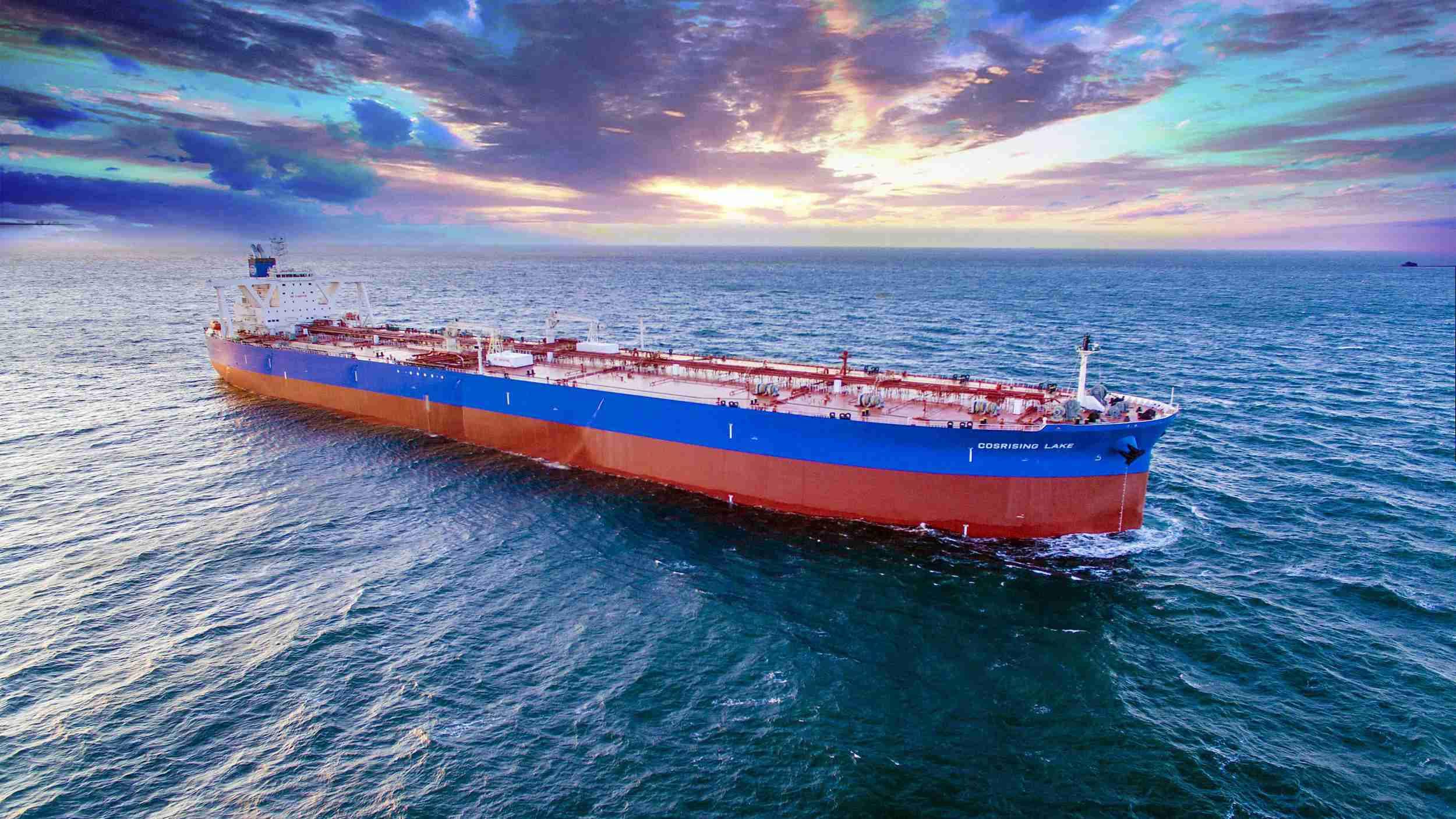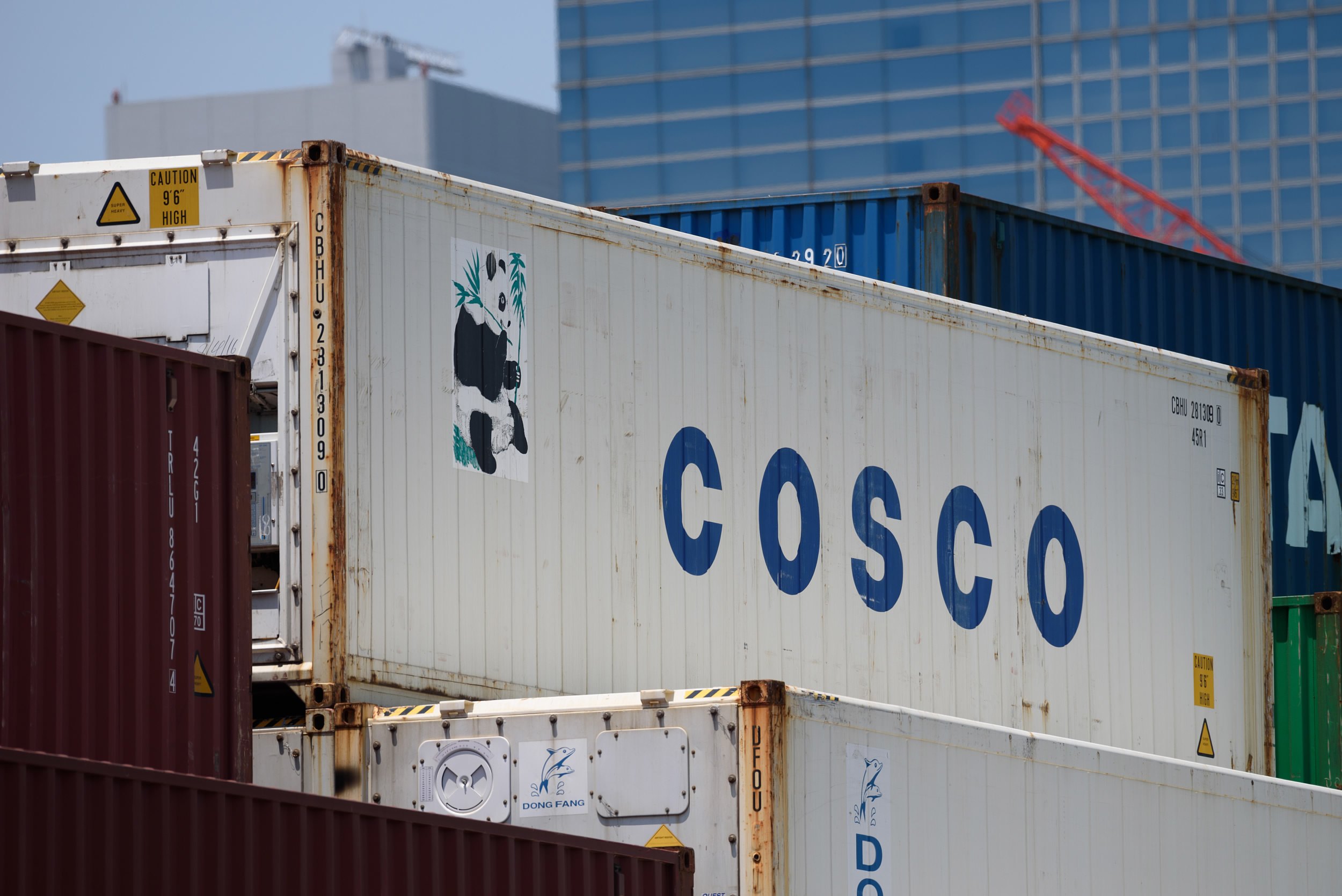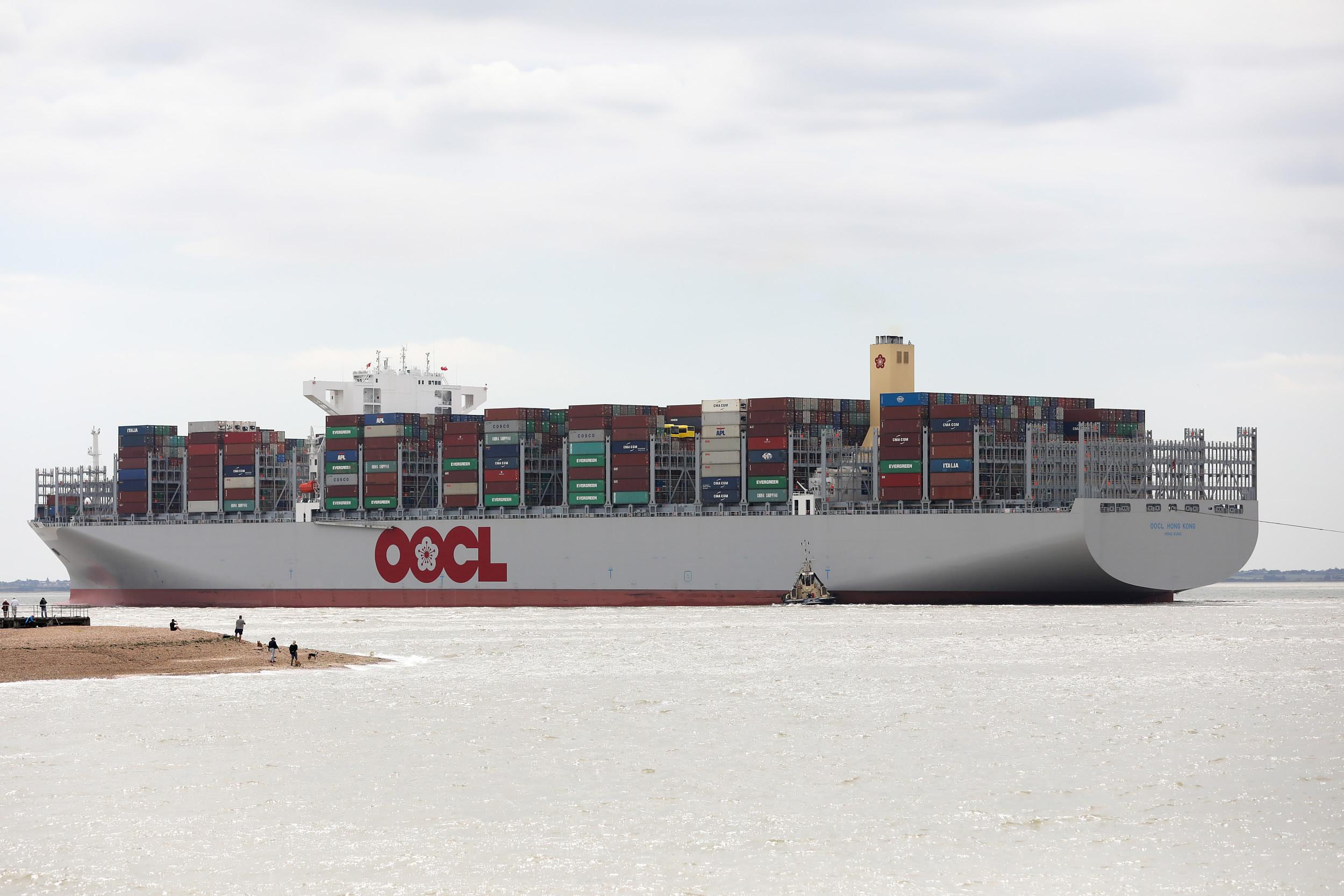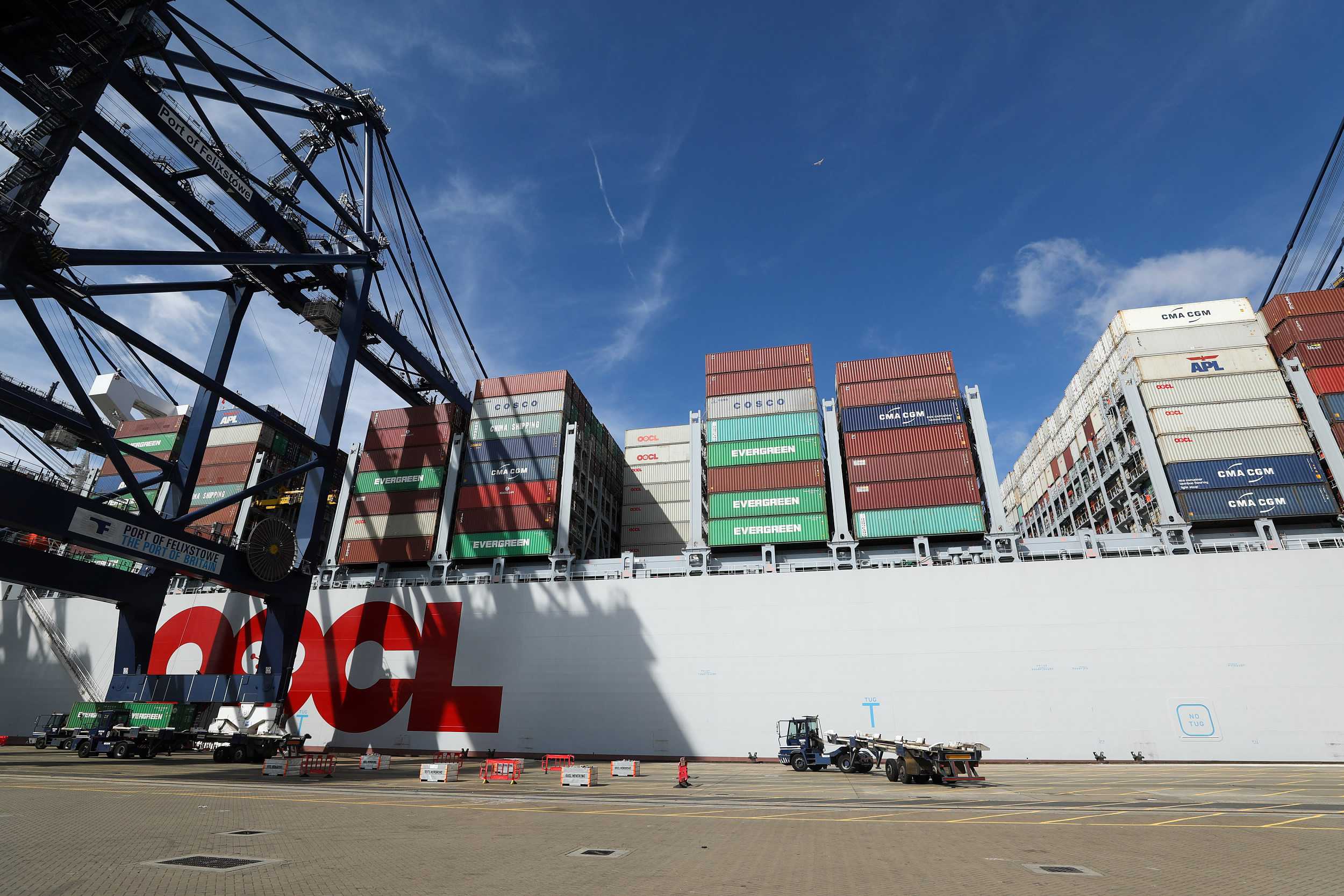
Business
20:29, 10-Jul-2017
China's COSCO slings its way to become world's biggest carrier

China's biggest shipping company COSCO saw its stock climb on Monday after bidding 6.3 billion dollars for a Hong Kong peer.
The deal would see it become the world's third-biggest container shipper and underline China's supply-chain ambitions.
State-backed COSCO on Sunday offered to buy Orient Overseas International Limited (OOIL) at a 31.1-percent premium to its Friday close, a price analysts said was high given the industry was just emerging from a prolonged slump.

A COSCO container sits stacked at a shipping terminal in Tokyo, Japan, on Monday, July 10, 2017. /VCG Photo
A COSCO container sits stacked at a shipping terminal in Tokyo, Japan, on Monday, July 10, 2017. /VCG Photo
The offer comes as China's government is outspoken over its desire to raise its profile in global shipping.
It formed COSCO Shipping last year by merging sixth-and seventh-ranked container fleets China Ocean Shipping (Group) Company and China Shipping Group.
The latest deal would raise COSCO from fourth rank and place it behind only Denmark's Maersk Line and Switzerland's Mediterranean Shipping Co (MSC).

The Orient Overseas's Hong Kong container ship departs from the Port of Felixstowe Ltd., a subsidiary of CK Hutchison Holdings Ltd., in Felixstowe, UK, on Friday, June 23, 2017. /VCG Photo
The Orient Overseas's Hong Kong container ship departs from the Port of Felixstowe Ltd., a subsidiary of CK Hutchison Holdings Ltd., in Felixstowe, UK, on Friday, June 23, 2017. /VCG Photo
"For Maersk, MSC, I think its a matter of time that COSCO will probably want to stake a claim to be the world's biggest carrier," said an analyst, who was not authorized to speak with the media about the deal and so declined to be identified.
A suitor's shares often fall after making a bid, but COSCO Shipping's Hong Kong-listed stock rose as much as 6 percent on Monday to its highest in almost two years. OOIL stock rose as per usual for a target but at 20 percent, it was short of the offer price.
BOCOM International analyst Geoffrey Cheng said COSCO Shipping's offer represented a premium to comparable firms such as Maersk as well as similar transactions like France's CMA CGM SA's purchase of Singapore's Neptune Orient Lines in 2015.
"We think accepting the offer is the best option for (OOIL) investors," he said.
Dimming status
From Hong Kong's perspective, the deal comes as the city's transport hub status dims. Its once world-leading port is handling less cargo than in past years whereas cargo at Chinese mainland ports is on the rise.
In the skies, flag carrier Cathay Pacific Airways Ltd recently posted its first loss since 2008.
OOIL commands less than 3 percent of the global container shipping market but could help COSCO gain exposure to the US, industry insiders said.

The Orient Overseas Container Line's Hong Kong container ship sits anchored dockside at the Port of Felixstowe Ltd., a subsidiary of CK Hutchison Holdings Ltd., in Felixstowe, UK, on Friday, June 23, 2017. /VCG Photo
The Orient Overseas Container Line's Hong Kong container ship sits anchored dockside at the Port of Felixstowe Ltd., a subsidiary of CK Hutchison Holdings Ltd., in Felixstowe, UK, on Friday, June 23, 2017. /VCG Photo
OOIL's main container unit, Orient Overseas Container Ltd (OOCL), was founded in 1969 by Tung Chao-yung, father of former Hong Kong leader Tung Chee-hwa. The magnate's second son, Tung Chee-chen is now chairman, president and chief executive.
"The merger would be complementary as OOIL is strong in Transpacific and Intra-Asia trade, and COSCO has strong China domestic trade," said Samson Lo, head of Asia mergers-and-acquisitions at UBS, which is advising COSCO Shipping.
"The terminals and logistics businesses of OOIL can bring further synergies to COSCO as well."
COSCO is making its offer with Shanghai International Port Group Co., Ltd. The shipping line, which in January secured 26 billion dollars in financing from China Development Bank to support business development, said it would finance the deal with a bridge loan from Bank of China.
(Source: Reuters)

SITEMAP
Copyright © 2018 CGTN. Beijing ICP prepared NO.16065310-3
Copyright © 2018 CGTN. Beijing ICP prepared NO.16065310-3